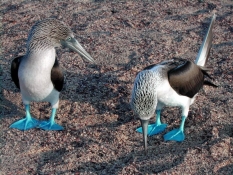Brian's
Class Materials- SPRING 2009 - SEYS 778
SEYS 778 Home
Science Education Research Article Review Activity
The purpose of this activity is to re-immerse you in the world of science education research.
Instructions: Work in your research group on this activity.
Instructions: Work in your research group on this activity.
- Choose an article from the list below. You do not need to print out your article.
- Take about 15 minutes to scan the article, paying special attention to the following:
- the abstract
- the research design and data collected
- any tables or figures
- results and conclusions
- Come up with strengths and weakeness of the study and post these, along with the link to your article on our Discussion Board in BlackBoard.
- After posting your review, view the reviews from other groups.
- The Suitability of External Control-Groups for Empirical Control Purposes:a Cautionary Story in Science Education Research
- The Origin and Extent of Student’s Understandings: The Effect of
Various Kinds of Factors in Conceptual Understanding
in Volcanism - Learning Junior Secondary Science through Multi-Modal Representations
- Adolescent Students’ Images of an Environmental Scientist:
An Opportunity for Constructivist Teaching - *Sisters in Sport Science: A Sport-Oriented Science and Mathematics Enrichment Program
- Students' Problem Solving Strategies in Stoichiometry and their Relationships to Conceptual Understanding and Learning Approaches
- No Time for Venus Flytraps: Effects of End-of-Course Testing
on Biology Curriculum in Two States - *Promoting Science Instruction and Assessment for English Language Learners
- Visual Thinking Networking Promotes Problem Solving Achievement
for 9th Grade Earth Science Students1 - Which Comes First: Computer Simulation of Dissection or a Traditional Laboratory Practical Method of Dissection
- Standardized Testing in Physics via the World Wide Web
- The Tension Between HyperText Environments and Science Learning
- The Effects of English Language Proficiency and Scientific Reasoning Skills on the Acquisition of Science Content Knowledge by Hispanic English Language Learners and Native English Language Speaking Students
- The Use of the National Science Education Standards
to
Critique a Standardized High School Biology Examination - High School Students' Perceptions of Evolutionary Theory
- Teachers’ Beliefs About Accommodating Students’ Learning Styles In Science Classes
